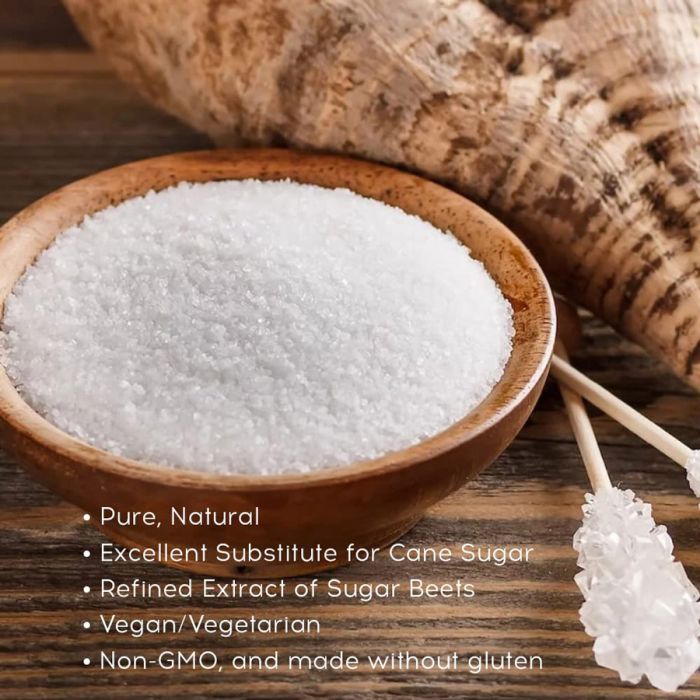Exploring the Distinctions being used and Benefits In Between Beet Sugar Vs Cane Sugar
In the culinary globe, the option between beet sugar and cane sugar is not simply regarding sweetness yet includes a nuanced consideration of taste, application, and impact. While both sugars originate from different plants, each undergoes special manufacturing processes that discreetly influence their features and suitability for numerous meals. As cooks and customers progressively focus on both the environmental and taste accounts of their active ingredients, understanding these differences comes to be critical. This expedition provides insight into exactly how each sugar type can best boost culinary creations.
Beginnings and Manufacturing Processes of Beet and Cane Sugar

Cane sugar, on the other hand, originates from the sugarcane plant, an exotic turf belonging to Southeast Asia and now cultivated in tropical zones worldwide. The manufacturing of cane sugar begins with the harvesting of cane stalks, which are squashed to release the juice. This juice is then boiled to concentrate it, after which it is spun in centrifuges to create raw sugar crystals. These crystals are more refined to produce the white sugar frequently readily available in stores.

Nutritional Material and Health Considerations

When comparing the nutritional content of beet sugar and cane sugar, it comes to be noticeable that both kinds essentially supply the exact same caloric values, with around 16 calories per teaspoon and no significant nutrient variety. Both sugars, when eaten in excess, can contribute to elevated blood sugar levels, a risk variable for diabetes mellitus and various other metabolic conditions. From a health viewpoint, regulating intake of any kind of kind of sugar, whether from beet or cane, is recommended to avoid these potential adverse results on well-being.
Taste Accounts and Culinary Applications
Despite their comparable chemical you could try these out structures, beet sugar and cane sugar differ discreetly in flavor, which can affect their usage in different cooking contexts. Walking cane sugar often lugs a hint of molasses, even in its polished form, offering a warm, caramel-like touch that improves baked goods, coffee, and chocolate-based dishes. This small molasses taste is particularly valued in the baking sector for adding deepness to sweets and breads. On the other hand, beet sugar is defined by its highly improved, neutral taste, making it a functional sweetener that does not modify the taste profiles of recipes. This neutrality is specifically helpful in delicate recipes, such as light breads, creams, and some sauces, where the intrinsic tastes of other active ingredients are intended to attract attention. Cooks and food manufacturers may pick one type of sugar over the other based on the wanted flavor end result of their culinary developments.
Ecological Influence and Sustainability
While both beet and cane sugars are stemmed from plants, their environmental effects differ dramatically as a result of the distinctive approaches of farming and handling needed for each and every. Sugar beet farming commonly includes extensive automation, published here which can enhance nonrenewable fuel source consumption and carbon discharges. Beets can be expanded in cooler climates and need less irrigation, potentially minimizing water usage contrasted to sugarcane. Sugarcane, on the various other hand, is usually expanded in tropical regions where it depends heavily on irrigation and a much longer growing period, increasing its water impact.
In addition, the processing of sugarcane typically creates a considerable amount of waste, consisting of bagasse, which, although functional as biofuel, often adds to air contamination if shed inefficiently. Sugar beet processing makes use of even more of the raw products, resulting in less waste. Both sectors deal with difficulties in lowering their ecological impacts, but ongoing innovations in agricultural methods and waste management are aiming to improve sustainability.
Economic Factors Affecting the Sugar Industry
The economic characteristics check this site out of the sugar industry are dramatically influenced by worldwide market needs and profession plans. Variables such as tolls, subsidies, and global trade agreements play crucial functions in shaping the competitive landscape. For example, in regions where sugarcane or sugar beet production is subsidized, producers might have an economic advantage that allows them to offer reduced costs on the global market. This can develop variations in earnings and market access for producers in countries without such aids.
Furthermore, variations in international need for sugar, affected by nutritional fads and industrial usage in foodstuff, straight influence costs and manufacturing levels. beet sugar vs cane sugar. Climate conditions likewise play a crucial duty, as they can significantly impact plant returns and, as a result, the supply chain. This irregularity introduces a degree of financial unpredictability that can cause investment volatility in sugar manufacturing markets, influencing decisions from growing to market technique
Conclusion
In verdict, both beet and cane sugar have distinct top qualities that suit various culinary needs. While cane sugar conveys a rich flavor perfect for enhancing baked products, beet sugar's nonpartisanship is excellent for lighter dishes.